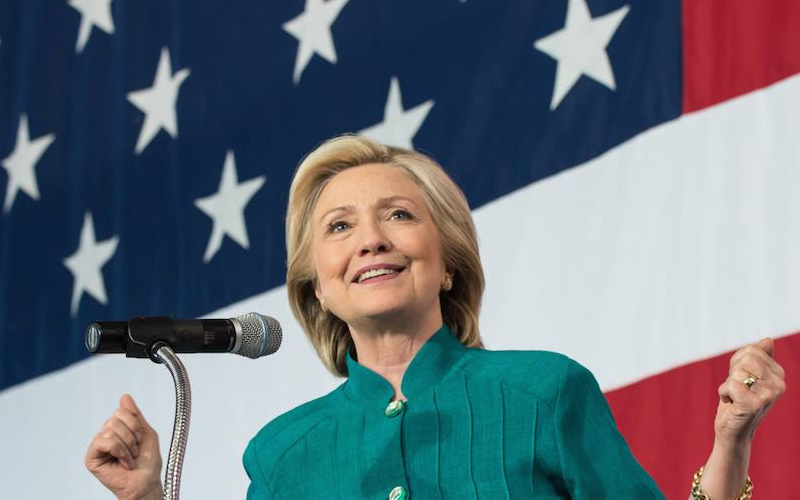
What does Turkey think about the next American President?
Next year’s presidential election in America not only effects the United States but the rest of the globe including NATO ally, Turkey. The US-Turkish relations are interdependent on many critical issues including security, alliances, and economics all of which drive both the US and Turkish foreign policies. The events that have been escalating over the last five years in Syria have put serious strains on Turkey both domestically and internationally requiring various relationships with other nations to alleviate the burden of the regional crisis occurring on Turkey’s border.
Turkey has been no stranger to American media coverage of their domestic issues over the last six months with stories ranging from November’s historical Turkish elections, terrorist attacks in Ankara, Syrian refugees, and, most recently, the bombing of the Russian fighter jet. The Obama administration has made great progress in strengthening US-Turkish relations over the last several years and the next administration will have to continue cooperating with Turkey on major foreign policy issues.
The next administration will have to address the critical issues that cause a fundamental divide between the West and Turkey including: developing a comprehensive strategy for Iraq and Syria, resolving the lack of trust in battling ISIS, addressing the PKK as a terrorist organization, and the 2.2 million Syrian refugees.
The new administration will assume the responsibility of maintaining US-Turkish relations.
As the top two presidential candidates in the polls are Donald Trump and Hillary Clinton, reflections on the positions of both candidates as they relate to Turkey as well as the critical issues surrounding the allied state are crucial topics today.
The Don and Turkey
Donald Trump is no stranger to the spotlight and has made headlines for the last several months over his political speeches on a variety of topics including Turkey. In an interview earlier this month published by Politico, Trump said, “I’ve gotten to know Turkey very well; they’re amazing people, they’re incredible people, they have a strong leader.” A week following this interview the headlines quickly changed. Trump’s campaign released a statement calling for a total and complete shutdown of Muslims entering the United States causing a major media backlash from both American and Turkish citizens. Donald Trump has several business investments in Turkey including Istanbul’s dual Trump Towers that serve as a major business center in the heart of city.
Trump was quickly condemned by American media and politicians as well as sources in Turkey including opposing media outlets, governmental agencies, business owners, and even by the Trump towers’ manager for his racist and scandalous claims against Muslims. The negative comments from Trump sparked reactions from his fellow Republican Party members, including Speaker Paul Ryan who also condemned the racial slurs and un-American suggestion of banning all Muslims from entering the United States.
The call to ban all Muslims’ entry into the United States would prevent diversifying the melting pot history of America. Trump’s latest statements have been received with overall unpopularity by Turkish citizens as well as many American citizens. If Trump were to be successful in banning all Muslims from entry to the US, thousands of opportunities for Turkish citizens to visit the US would be put on hold causing even greater anti-American sentiment which would color future relations between Turkey and the US. As Trump’s political or personal views of Turkey may change by the end of the week or next year, nevertheless there is still concern over where US-Turkish relations would stand if this Republican candidate should win the election.
Hillary’s Hard Choices & Turkey
As Clinton has been in the political arena for far longer than Trump, her policy views have been well noted over the last several years both domestically and internationally. But as she transitions to a presidential candidate her policy positions reflect the current topics about which American voters are concerned. In this week’s democratic debate, Syria was once again a hot topic of discussion among the candidates. Clinton has recently changed her position on Syria from a US priority of taking down ISIS and political transition in Syria to most recently supporting this week’s UN Security Resolution focusing on a cooperation among Russia, US, Saudi Arabia, and Turkey for a political transition in Syria.
Within two months of Clinton’s tenure as Secretary of State, she visited Turkey to participate in the talks about bilateral relations and exchange views on the conflicts in both Syria and Libya. After her visit to Turkey, Clinton proclaimed regarding US-Turkish relations, “we share a commitment to democracy, a secular constitution, respect for religious freedom and belief, and in free markets a sense of global responsibility.” Now six years later as a presidential candidate, Clinton’s recent remarks at the Democratic debate questioned Turkey’s collaboration with the US in fighting Daesh. Clinton suggested that Turkey can do more to help fortify the borders between Syria and Turkey as well as being “absolutely clear where they stand” on the fight with Daesh.
The relationship between the two NATO states has been under a microscope particularly as it relates to Daesh. Although Clinton mentioned her concern over Turkey’s stance on US military operations against Daesh she pledged to work with domestic and foreign tech companies as well as with American Muslims to combat terrorism and defeat the terrorist group. Clinton has suggested she wants to help Turkey build a strong wall to keep terrorists out from neighboring Syria by cooperating both politically and militarily with Turkey.
In her memoir, Hard Choices, Clinton addresses the fact that popular approval of the United States fell below 9 percent in Turkey during the Bush administration and that “none of our relationships in Europe needed more tending than Turkey.” Clinton’s acknowledgment of the need to strengthen relations with Turkey on various levels is promising for better cooperation between the NATO allies but realistically can the relationship improve without real action in the near future.
The Road to the White House & Ankara
Regardless of whether a Republican or a Democrat is elected next year there has to be a positive strategy for future cooperation between Turkey and the US. As Turkey continues to grow as a major player not only in the Middle East but globally and hopefully in the near future as an EU member, there is a lot at stake for the world in resolving the conflict in Syria. The US is the largest financial and military contributor to NATO and a strong relationship between both nations would benefit both sides.
